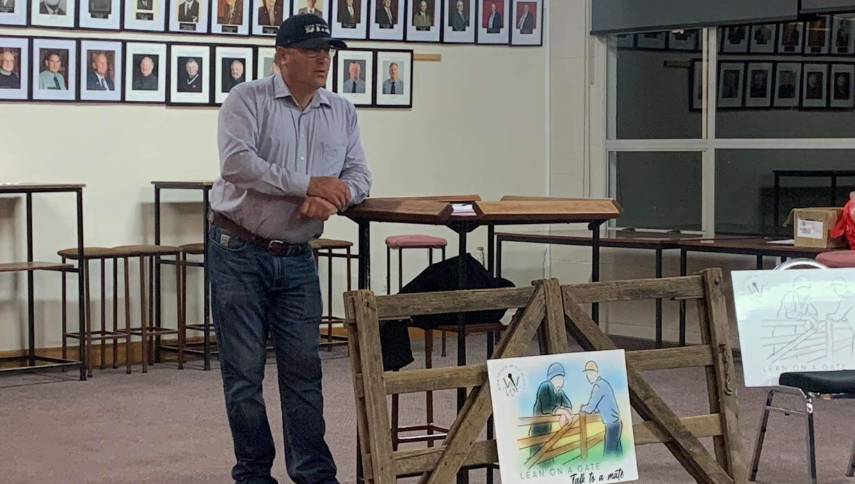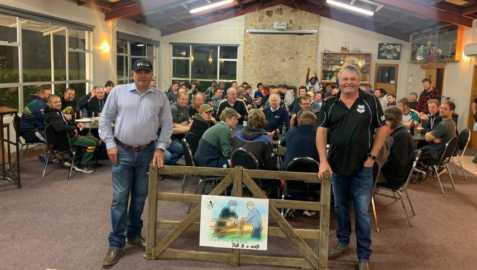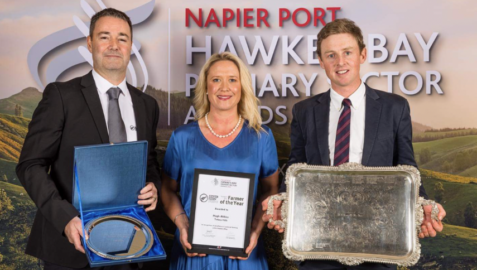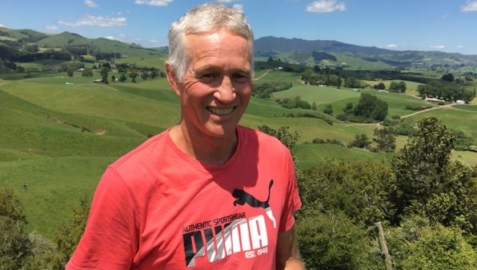
Grass Roots Connection
Module Overview
Craig Wiggins is a well-known rural voice thanks to several decades calling rodeos and jet-sprints, emceeing events and advocating on behalf of farmers. He’s also the driving force behind a host of mental health initiatives designed to boost the resilience of his local community.
You dedicate a lot of time and energy to your local community in Canterbury. What is it about this work that ‘fills your cup’?
I’ve been commentating rural events in three countries for 35 years and I’ve seen that every rural community needs local champions. People who are accessible and show that everything is still possible in a rural community. A lot of them fly under the radar, but the work they do is vital, for example, running kids’ sport.
How does this improve people’s ability to cope with the ups and downs of farming?
Strong communities mean strong people and strong people mean strong communities. If we have a strong community, it means we have more people engaging and connecting and looking after themselves. That provides a lot of support and reassurance for those who might need it. That’s how you build rural resilience. That’s what drives it for me.
The thing with mental health is that people don’t realise they need the help, until they need it. That’s why it’s important to empower and connect people before they reach that point.
Even during the Covid lockdowns you went to great lengths to connect people in your community via ZOOM, didn’t you?
Yes, there were times during Covid when I was putting some of the country’s top decision makers in front of farmers so they felt connected. We also had mental health awareness nights hosted by farmers. Some nights I had 80 other farmers connected to my computer discussing the issues of the day. That went on for 15 months!
Now Covid restrictions have lifted, what are you doing to reconnect people?
We started something called Agriconnect. We’ve gone to the local services who regularly visit farms and encouraged them to keep an eye on people and speak up if they notice someone is struggling. We’ve had doctors, mental health professionals and financial advisors along to talk to them, so they know the signs to look for and what help is available.
Has it worked?
Yes, it’s working well, because there’s already a lot of trust between a farmer and their stock agent. For example, for the farmer an agent might spend $200,000 in a few minutes buying lambs, so it’s a relationship that can easily be extended, if the stock agent is worried about how someone is doing.
You also started the Lean on a Gate, Talk to a Mate campaign. What’s the idea behind that?
I started it after I lost a couple of people I knew to suicide. That made me think, what’s missing here? I thought back to my days farming in Raetihi and remembered how everyone used to go down to the sales yards and lean on gate and talk to each other. I realised we’d lost a little bit of that and it was time to get it back.
But these days everyone’s on their phones. How do you recreate that?
I’ve encouraged people to look at their phone and reconnect with someone they haven’t rung in a while. To actually check how they’re doing. It’s a simple idea, but it works. It’s not just rural people who’ve benefited either. I’ve had a lot of mainstream media interest because the idea of getting out of your phone and getting back into a human space is something many people related to, especially after Covid.
If someone is struggling, how do you have those chats? A lot of people may not feel comfortable.
All you have to do is listen. The biggest thing is to show empathy and don’t judge. If people need counselling or financial advice help them find that support afterwards. Timing’s important too. Sometimes I suggest I meet someone for dinner first and then have a chat.
Wellbeing can sound very worthy. How does this work relate to running a successful farm?
Someone who is unwell is usually making poor decisions because of the stress and pressure. That’s not good for any business. Also, the impact of being unwell goes beyond the person themselves – it affects partners, kids, colleagues and others in the community.
So, what’s your message to farmers?
As farmers, we have to recognise that we are the most important cog in the wheel. If we aren’t performing well, the rest of the business is going to suffer. We have to look after ourselves.
How do you make this happen when you’re busy?
You just have to make time. If you’re busy, my advice is pick what you can do and do it in small steps. It might be as simple as packing a lunch and taking the wife and kids for a picnic in the back paddock, every once in a while. If that’s all you’ve got time for, then that’s what you need to do. But we also need to empower communities to help farmers.
How can communities help farmers who might be feeling ‘under the pump’?
Well, we’ve set up a charitable trust to hold events for farmers like a cabaret night or a quiz night. We’ve also done quite a few pop-up barbecues. We park up outside the local hall, let people know we’re going to be there and farmers can just come along and have a yak over a burger for a couple of hours. The Carr Family Foundation also engage our help to take a medical professional along to sales yards to do health checks for farmers and see how they’re going. That eye-to-eye connection, where we are actually checking on each other, is something I really believe in.
A lot of this work probably goes unnoticed, doesn’t it?
Yes, people looking at rural communities from the outside may not realise lots of good stuff is already happening at the grass roots level. But I really believe achieving change in this space is about empowering communities. I think it’s time to invest in local events and local people so that any money raised can stay in those communities and do more good.
Have you heard of Farmstrong?
Yes. The beauty of Farmstrong is that it’s doing all the publicity and promotion around these ideas and keeping people up to date with latest thinking. The next step is about empowering people like me down at ground level who are going one-to-one. I believe there are people like me in every community. It’s just a matter of connecting them and enabling them.
What about your own wellbeing Wiggy? Do you ‘walk the talk’?
I try to [laughs]. My own mental wellbeing revolves around my clerk of the course work at race meetings. That really sustains me. I’ve also got great family support and a good network of local people I catch up with.
But to be honest with you, one thing doing this work has taught me is that you get an awful lot back by giving your time to others. If you want to improve your own mental wellbeing, go and help someone else.
Farmstrong is a nationwide, rural wellbeing programme that helps farmers and growers live well to farm well. To find out what else could work for you and ‘lock it in’, visit farmstrong.co.nz



